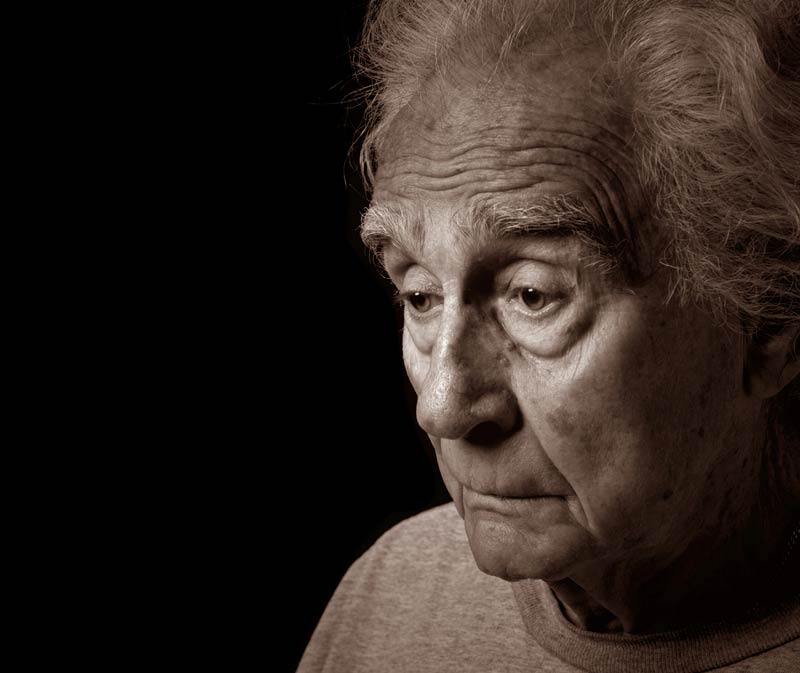Older Latino Men Lack Depression Treatment

SAN ANTONIO, Texas — Older Mexican-American men become depressed at about the same rate as their white non-Hispanic counterparts but they are much less likely to get treatment, a new study finds.
The research, presented Friday (March 18) at the annual meeting of the American Association for Geriatric Psychiatry here, drew on a population of non-Hispanic and Mexican-American men ages 60 or older who came to either a county hospital clinic or a primary care clinic for regular medical care. After screening 364 men for depression, the researchers found that while about a quarter of both groups had the disorder, 70 percent of the Mexican-American men weren't getting treatment, compared with 25 percent of their white counterparts.
"The frequency of receiving depression treatment is very different," study researcher Ladson Hinton, a psychiatrist at the University of California, Davis, told LiveScience. "There's this huge disparity in receiving treatment for depression."
Lagging diagnoses
The study didn't determine why the gap exists, Hinton said, but researchers are still analyzing data from in-depth interviews with the men. Hinton and his colleagues subdivided the Mexican-American men based on whether they spoke mostly Spanish and whether they were born in Mexico or the United States, and found that all groups, no matter language or place of birth, had equally abysmal records of depression treatment. Almost all of the men had adequate insurance coverage, Hinton said, suggesting that it's not a lack of access to doctors that keeps them undertreated.
The researchers have found that the Mexican-American men are less likely than white men to be told by their doctors that they are depressed. Only 35 percent of the Mexican-American men with depression had been told by their doctors before the study that they had the disease, compared with 68 percent of the non-Hispanic white men.
"That points to a provider issue with diagnosis and the communication of that diagnosis," Hinton said.
Get the world’s most fascinating discoveries delivered straight to your inbox.
"We've been struck in our qualitative data how they will use worlds like feeling useless, in Spanish it's 'inútil,' as a way of expressing what it's like to be depressed," he said. "I think sometimes when patients, say, older men, don't use those red-flag words [like 'sad' or 'angry'] that are in the criteria for major depression, they might be less likely to be diagnosed."
Stigma and belief
Men, no matter their race or ethnicity, are less likely to receive depression treatment than women even after they're diagnosed, Hinton said. Part of the reason may be that depression bestows a "double stigma" on men: the stigma of mental illness combined with shame about being unproductive, "useless" and unmanly.
Other research has found that Latino populations are not always well-served by the mental health community.
"I don't think the treatment is matching their beliefs, if you will," said Daniel Jimenez, a researcher at the Dartmouth Psychiatric Research Center in New Hampshire who didn't take part in the study.
Studies have shown that Latino populations prefer not to take medications for mental illness, Jimenez told LiveScience, which is the first line of treatment most doctors prescribe. And while psychotherapy is more accepted among the Latino community, drop-out rates are "astronomical," Jimenez said.
Hinton plans to further analyze his data to find out what sort of treatments the older men in his study would prefer. Many of them mentioned the desire to include family in their treatment, he said, a possibility that hasn't been well-studied.
There may be other options that make depression treatment more palatable to older Latinos, Jimenez said. In his practice, many Latino men and women mention the need to exercise and stay busy to ease the sense of pressure that major depression brings. Incorporating culturally adapted treatments into the usual arsenal of medication and therapy could bring more older Latinos to the help they need, Jimenez said.
"[Hinton] has done such a great job of really finding out in-depth what the problem is," Jimenez said. "Using that information, we can start building programs, we can start building better treatments."
You can follow LiveScience senior writer Stephanie Pappas on Twitter @sipappas.

Stephanie Pappas is a contributing writer for Live Science, covering topics ranging from geoscience to archaeology to the human brain and behavior. She was previously a senior writer for Live Science but is now a freelancer based in Denver, Colorado, and regularly contributes to Scientific American and The Monitor, the monthly magazine of the American Psychological Association. Stephanie received a bachelor's degree in psychology from the University of South Carolina and a graduate certificate in science communication from the University of California, Santa Cruz.


